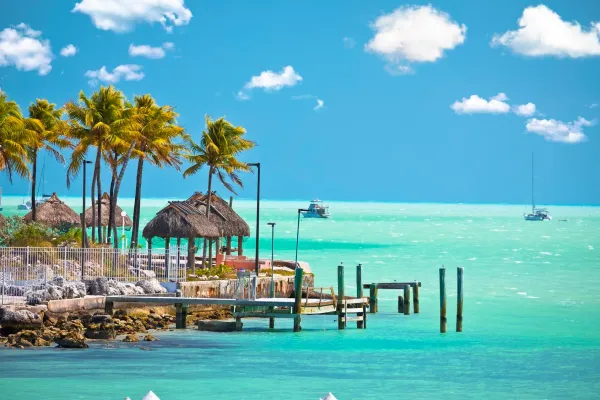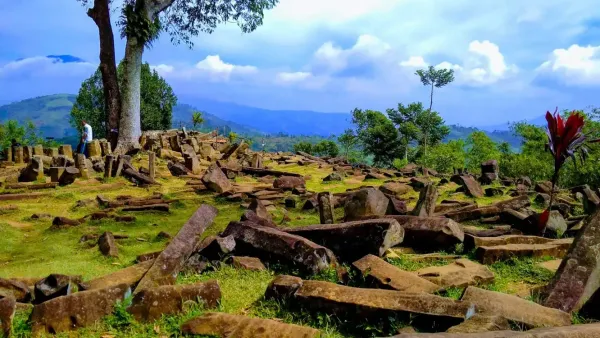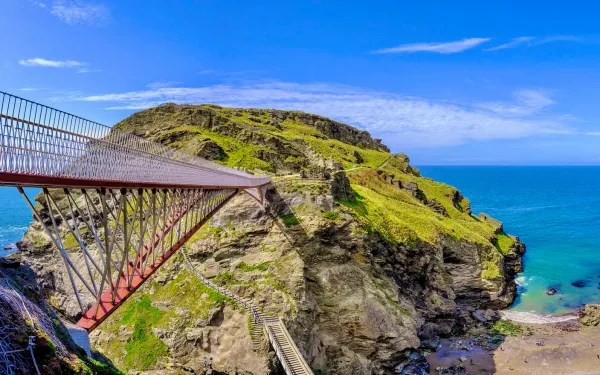The Power of Technology: Building Strong Travel Communities
Leveraging technology is pivotal in crafting vibrant travel communities, seamlessly linking travelers and enriching journeys. As travel dynamics shift, technology stands as a beacon for innovative change, molding the future of travel community interactions and sustenance.

Table of Contents
Introduction
Travel communities are formed by travelers who share common interests and experiences. In recent years, technology has played a crucial role in connecting travelers and fostering these communities. With the advent of online platforms and digital innovations, the way travel communities are built and maintained has been transformed. This article explores the impact of technology on travel communities and how it has revolutionized the travel industry.
Travel communities are no longer limited to physical interactions and word-of-mouth recommendations. With the rise of social media platforms and online travel forums, travelers can now connect with like-minded individuals from all over the world. These online communities provide a platform for travelers to share their experiences, seek advice, and even plan trips together. Technology has made it easier than ever to find and join these communities, allowing travelers to expand their social networks and form connections with people who share their passion for exploration.
Read Also: The Power of a Travel Community: Expanding Horizons and Connecting Wanderers
Impact of Technology on Travel Communities
Technology's Influence on Visitor Experiences
Technology has had a significant impact on visitor experiences in tourism destinations. It can be used to protect local interests and improve the overall visitor experience. One of the common problems faced by destinations is over-tourism, which puts a strain on resources and causes sustainability issues. Technology helps reshape traveler engagement and keeps travel organizations connected to community priorities, addressing these challenges.
For example, pre-arrival technology has become increasingly important in enhancing travel experiences. It allows travelers to educate themselves on local customs, provides personalized itineraries, and offers tools for reservations and occupancy limits. By using technology, travelers can be well-informed about local practices and ensure they have a positive impact on the community they are visiting.
In addition to pre-arrival technology, real-time information and communication tools have also improved visitor experiences. Travelers can now access up-to-date information about weather conditions, traffic updates, and local events, allowing them to make informed decisions during their trip. This technology not only enhances the overall visitor experience but also helps travelers navigate potential challenges and make the most of their time in a destination.
Read Also: How to Find and Join Travel Communities: A Comprehensive Guide
Pre-Arrival Technology for Enhanced Travel Experiences
Pre-arrival technology not only educates travelers but also helps in notifying them about conduct and providing transportation options for enhanced exploration. It allows visitors to plan their trips more efficiently and make the most of their experience while minimizing their impact on natural resources and the community.
Scheduling and managing tools are also valuable in helping visitors optimize their travel experience. These tools enable travelers to plan their activities and ensure that they can make the most of their time while controlling the community impact. By utilizing technology, visitors can better manage their time and resources, leading to a more sustainable and enjoyable travel experience.
Moreover, pre-arrival technology has also made it easier for travelers to connect with local communities before their trip. Online platforms and apps allow travelers to interact with local guides, artisans, and experts, providing them with insider knowledge and unique experiences. This not only benefits the travelers by giving them a deeper understanding of the local culture but also supports local communities by promoting their services and products.
Addressing Local and Visitor Concerns
Over-tourism has become a significant concern for both locals and visitors. According to a study, 69% of locals are concerned with over-tourism, while 37% view visitors as inconsiderate. On the other hand, 62% of visitors want to avoid large crowds. Technology can play a crucial role in addressing these concerns.
Pre-arrival notifications, mobile applications, and responsive websites can enhance the visitor experience and help them explore the destination like a local. By using interactive trails and gamification, visitors can be engaged, revenue can be generated, and attention can be brought to lesser-known areas or businesses. These initiatives not only create a positive experience for visitors but also alleviate the concerns of locals regarding over-tourism.
For example, some destinations have implemented technology-driven solutions to manage crowd control and distribute visitors more evenly throughout the year. By using data analytics and predictive modeling, these destinations can identify peak periods and implement measures to reduce overcrowding. This not only improves the visitor experience but also ensures that local resources are not overwhelmed by the influx of tourists.
Read Also: Cultural Exchange and Learning in Travel Communities
Transforming the Travel Industry
Disruption of Traditional Travel Agents
Technology has disrupted traditional travel agents and transformed the way people plan and book their trips. Online travel agencies and direct bookings through airlines and hotels have given travelers more choice and information about their destinations. This shift has allowed travelers to have greater control over their travel experiences and has reduced the reliance on traditional travel agents.
Some travel agents have adapted to this digital transformation by introducing online bookings and embracing digital innovation. By leveraging technology, travel agents can remain relevant in the industry and provide personalized services to meet the rising consumer expectations.
Furthermore, technology has also empowered travelers to become their own travel agents. With the abundance of online resources and booking platforms, travelers can now research, plan, and book their trips without the need for a middleman. This has not only made the process more convenient but also gives travelers the freedom to tailor their trips according to their preferences and budget.
The Future of Travel: Personalization and Customization
Technology has revolutionized every phase of hospitality, from finding a hotel to personalizing the stay. Travel brands have had to adapt to meet the rising consumer expectations and provide personalized services. The future of travel will involve increasingly personalized experiences and customized products based on traveler profiles and past behavior.
By utilizing technology, travel organizations can gather data and insights about their customers, allowing them to offer tailored recommendations and services. This personalized approach enhances the overall travel experience and creates a stronger connection between travelers and the destinations they visit.
For example, hotels can use technology to create personalized room settings based on guest preferences, such as temperature, lighting, and entertainment options. Travel companies can also leverage data to offer personalized travel itineraries, suggesting activities and attractions based on the traveler's interests and previous travel history. This level of customization not only enhances the traveler's experience but also creates a sense of loyalty and satisfaction.
Technology: A Catalyst for Travel Planning and Experience
Ease and Efficiency in Travel Planning
Technology has made travel planning easier and more efficient. With all necessary trip information available online and the availability of professional help, travelers can plan their trips with ease. Flights, accommodations, and activities can be booked online in minutes, with the option of e-tickets and mobile check-ins. This convenience saves time and enhances the overall planning process.
In addition to online booking platforms, travel planning apps have also become popular among travelers. These apps provide a one-stop solution for trip planning, offering features such as itinerary organization, budget tracking, and real-time updates. With the help of these apps, travelers can streamline their planning process and have all the necessary information at their fingertips.
Enhancing the Traveling Experience
Technology continues to enhance the traveling experience in various ways. For example, navigation tools like Google Maps help travelers find their destinations, while translation apps overcome language barriers. Additionally, technology allows for remote work and staying in touch with loved ones while traveling. Blogs, apps, chatbots, and other platforms provide travelers with the tools they need to plan and enjoy a unique and personalized trip.
Moreover, technology has also made it easier for travelers to document and share their travel experiences. With the rise of social media platforms and travel blogging, travelers can now capture and share their adventures in real-time. This not only allows them to create lasting memories but also inspires and informs other travelers who may be planning their own trips.
Conclusion
Technology plays a vital role in building travel communities by connecting travelers and enhancing their experiences. Embracing technology is essential for travel organizations to prioritize community needs and achieve positive results in tourism development. As the travel industry continues to evolve, technology will remain a catalyst for innovation and transformation, shaping the way travel communities are built and maintained.




